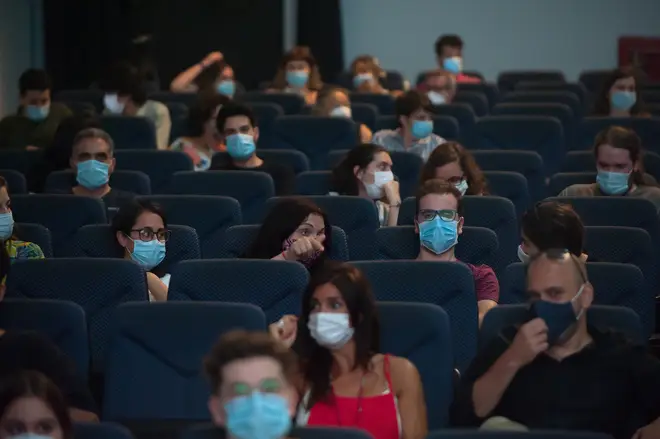
Ali Miraj 12pm - 3pm
24 July 2020, 05:54

The rules around face-coverings have changed in England with people needing to wear a mask in a number of locations, but what does the law say and are there any exemptions to face-covering rules?
Face coverings will be mandatory in museums, cinemas and places of worship in England from August 8.
The Prime Minister said face coverings will be compulsory in indoor settings where people are likely to come into contact with others they do not know.
It comes a week after people in England were legally obliged to wear a face covering in shops, shopping centres, banks, takeaway outlets, post offices, sandwich shops and supermarkets.
The new regulations come with stiff penalties for those who flout the rules and could see people issued with fines.
But what has changed? And how will your life be impacted by the new rules designed to stop the spread of coronavirus?
Read more: Supermarkets and shops refuse to enforce new face-coverings rule
Here's everything you need to know about the new face-covering laws.
From 8 August, face covering will be required in several new locations, including cinemas, places of worship and museums.
Speaking at a Downing Street press briefing, Boris Johnson said: "We will also extend the requirement to wear a face covering to other indoor settings where you are likely to come into contact with people you do not normally meet, such as museums, galleries, cinemas and places of worship.
"We now recommend face coverings are worn in these settings, and this will become enforceable in law from August 8."
Read more: Ministers accused of 'making it up as they go along' amid facemask confusion

How to make your own face mask
No-one can go enter certain buildings like shops without a face covering - which covers your face and nose - unless they have a reasonable excuse.
Face coverings must be worn in: cinemas, places of worship, museums, shops and shopping centres; banks; building societies; credit unions; short-term loan providers; savings clubs and currency exchange offices; anywhere that transmits money by cash or cheque; post offices.
The law also covers "indoor settings where people are likely to come into contact with others they do not know."
A reasonable excuse includes: where a person cannot put on, wear or remove a face covering because of physical or mental illness, impairment or disability; when accompanying someone who relies on lip reading; to avoid or escape harm or injury to themselves or others; in order to eat and drink or take medication.
Yes.
The rules do not apply to children under the age of 11, employees working in the business in question or public transport staff, police officers, other emergency workers and officials.
Premises which are exempt include: restaurants with table service and bars, including those in hotels or members' clubs; pubs; libraries; law firms; medical and dental practices; vets; cinemas; theatres; museums and galleries; aquariums, indoor zoos or visitor farms, or other indoor tourist, heritage or cultural sites; nightclubs; bingo halls; concert halls, public halls; conference centres; indoor fitness studios; gyms; leisure centres; indoor swimming pools; water parks; bowling alleys; funfairs; theme parks; amusement arcades; indoor soft play areas; indoor sports arenas; casinos; hotels; spas; beauty salons and hairdressers; tattoo and piercing parlours; storage centres; funeral directors; photography studios and auction houses.
You can be told to put on a face covering or leave the premises by police or transport officers.
Police officers can escort someone from a building for refusing to follow the rules and can use reasonable force if necessary.
You could be fined £100, reduced to £50 if paid within 14 days, or even prosecuted.

Shop owner says she has been blindsided by mask enforcement
The rules must be reviewed by the Government within six months of the law being brought into force, which is February 8 2021.
Ultimately the law expires after a year unless the Government scraps it beforehand.